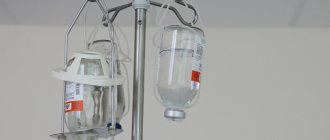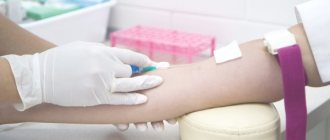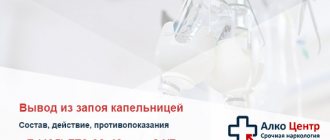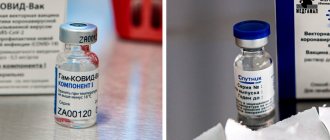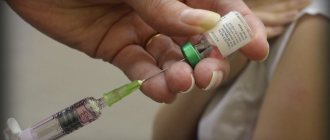Infusion therapy (or the administration of drugs and blood to a patient using a drip system) is recognized as one of the effective methods of treatment. A dropper is a medical device with which a fairly large volume of liquid is introduced into the individual’s body. One end of it is connected to a bottle or bag containing medicine or blood, and the other to the patient’s vein. The following types of systems are distinguished:
- a dropper for blood transfusion (or abbreviated as PC);
- for transfusion of solutions - PR.
IV catheters
These medical devices are used to introduce drugs into the bloodstream over a long period. A catheter is a small hollow tube that is inserted into a vein in different parts of the body (arms, head, collarbone). With its help, injury to the vein is eliminated. Installation is carried out in stationary conditions. There are several types of catheters for IVs:
- Butterfly system. This medical product is a needle with plastic wings at the base. Their purpose is to attach the catheter to the patient’s skin. The advantage of such a system is its ease of use and installation. The disadvantages include the fact that the needle is constantly in the vein, exposing it to injury if moved carelessly. The product is used quite often in cases of single administration of drugs, which takes no more than two hours.
- For peripheral veins. This type is intended for long-term use. The product is made of thin plastic. The needle is used only to puncture the vein and insert the catheter. One of the advantages is that the patient does not experience any inconvenience in the future, since the product itself is made of flexible plastic material. The catheter is changed after three days.
- For central veins. This system for insertion into the subclavian vein consists of a guidewire, a catheter and a set of needles. Designed for administering drugs into the bloodstream over a long period and is used in cardiac surgery, oncology, and intensive care. The installation of such a catheter is considered a minor surgical intervention and is performed by a resuscitation doctor in a medical organization. This manipulation is accompanied by a large number of complications, so peripheral veins are often used to administer medications. The system is introduced into the peripheral vein and then pulled into the central vein. In this case, the likelihood of complications is reduced.
Regardless of the type of catheter, its size matters. Products are marked according to color depending on this parameter:
- Orange. This color indicates thick catheters intended for viscous solutions and blood components.
- Violet. This tone is used for the thinnest products that are used for infusion of solutions.
IVs in neurology
There is a wide range of applications for various drip infusions for the treatment of degenerative-dystrophic changes in the spine, pain syndromes (cervicalgia, thoracalgia, lumbodynia), neuropathy, neuralgia and diseases of the brain and its blood vessels.
MRI and ultrasound center RIORIT
Area:
Kalininsky
Metro:
metro station Grazhdansky Prospekt, metro station Devyatkino, metro station Prospekt Prosveshcheniya
Address:
St. Petersburg, Kalininsky district, st. Rustaveli, 66 lit. G
Telephone:
Equipment:
Siemens, open type
Schedule:
Around the clock
All addresses and prices in St. Petersburg
City Multidisciplinary Hospital No. 2
Area:
Vyborg
Metro:
Grazhdansky Avenue, Ozerki, Prospekt Prosveshcheniya
Address:
St. Petersburg: per. Uchebnyi, 5
Telephone:
Equipment:
MRI Siemens Magnetom Espree 1.5T closed type, CT Siemens SOMATOM Definition 16 slices, CT Siemens SOMATOM Definition AS 64 slices
Schedule:
around the clock
| Intravenous drip administration of drugs / Dropper | from 200 rub. |
Elizabeth Hospital
Area:
Kalininsky
Metro:
Akademicheskaya, Civil Avenue, Ozerki, Polytechnic
Address:
St. Petersburg: st. Vavilovykh, 14
Telephone:
Equipment:
MRI Toshiba Excelart Vantage Atlas X 1.5T closed type, CT Toshiba Aquillion 64 slices, CT Toshiba Aquillion 16 slices
Schedule:
9.00 — 16.00
| Intravenous drip administration of drugs / Dropper | from 200 rub. |
Consultative and Diagnostic Center No. 85
Area:
Kirovsky
Metro:
Avenue of Veterans
Address:
St. Petersburg: Veteranov Ave., 89, bldg. 3
Telephone:
Equipment:
MRI Toshiba Excelart Vantage 1.5T closed type
Schedule:
8.00 — 21.00
| Intravenous drip administration of drugs / Dropper | from 200 rub. |
St. Petersburg Clinical Hospital RAS
Area:
Vyborg
Metro:
Courage Square, Udelnaya
Address:
St. Petersburg: Thorez Ave., 72
Telephone:
Equipment:
MRI Siemens Magnetom Essenza 1.5T closed type
Schedule:
8.00 — 21.00
| Intravenous drip administration of drugs / Dropper | from 230 rub. |
City Clinical Hospital No. 31
Area:
Petrogradsky
Metro:
Krestovsky Island
Address:
St. Petersburg: Dynamo Ave., 3
Telephone:
Equipment:
MRI Siemens Magnetom Essenza 1.5T closed type
Schedule:
8.00 — 21.00
| Intravenous drip administration of drugs / Dropper | from 230 rub. |
Military Medical Academy named after. S. M. Kirova
Area:
Vyborg
Metro:
Vyborgskaya, Gorkovskaya, Lenin Square
Address:
St. Petersburg: st. Academician Lebedeva, 6, lit. IN
Telephone:
Equipment:
MRI General Electric SIGNA 1.5T closed type, CT General Electric 16 slices
Schedule:
9.00 — 17.30
| Intravenous drip administration of drugs / Dropper | from 300 rub. |
Medical Center NDC-SPB Lakhta
Area:
Seaside
Metro:
Komendantsky Avenue
Address:
St. Petersburg: Ispytatelev Ave., 39
Telephone:
Equipment:
MRI Siemens Magnetom Avanto 1.5T closed type
Schedule:
8.00 — 23.00
| Intravenous drip administration of drugs / Dropper | from 300 rub. |
Medical clinic NDC-SPb on Entuziastov
Area:
Vasileostrovsky, Krasnogvardeysky
Metro:
Kupchino, Ladozhskaya
Address:
St. Petersburg: Entuziastov Ave., 33, bldg. 1, lit. A
Telephone:
Equipment:
MRI GE Signa Profile HD 0.2T open type
Schedule:
9:00 — 21:00
| Intravenous drip administration of drugs / Dropper | from 300 rub. |
Road Clinical Hospital of JSC Russian Railways
Area:
Kalininsky
Metro:
Akademicheskaya, Ladozhskaya, Lesnaya, Lenin Square, Courage Square
Address:
St. Petersburg: Mechnikova Ave., 27
Telephone:
Equipment:
MRI Philips intera 1.5T closed type, CT Siemens Somatom Emotion 16 slices
Schedule:
9.00 — 16.00
| Intravenous drip administration of drugs / Dropper | from 360 rub. |
Children's City Hospital No. 22
Area:
Kolpinsky
Metro:
Zvezdnaya, Kupchino, Moskovskaya, Obukhovo
Address:
St. Petersburg: Zavodskoy Ave., 1
Telephone:
Equipment:
MRI Philips Ingenia 1.5T semi-open type, CT General Electric BrightSpeed 16 slices
Schedule:
9.00 — 17.00
| Intravenous drip administration of drugs / Dropper | from 400 rub. |
Pokrovskaya Hospital
Area:
Vasileostrovsky
Metro:
Vasileostrovskaya, Primorskaya
Address:
St. Petersburg: Bolshoy pr. VO, 85
Telephone:
Equipment:
MRI GE Signa Infinity 1.0T closed type
Schedule:
8.00 — 21.00
| Intravenous drip administration of drugs / Dropper | from 400 rub. |
Medical Center MRI Chernyshevskaya
Area:
Central
Metro:
Chernyshevskaya
Address:
St. Petersburg: Zakharyevskaya st., 14
Telephone:
Equipment:
MRI GE Signa HDx 1.5T closed type
Schedule:
8.00 — 21.00
| Intravenous drip administration of drugs / Dropper | from 450 rub. |
Center for Emergency and Radiation Medicine named after. Nikiforova
Area:
Seaside
Metro:
Komendantsky Avenue, Pionerskaya, Staraya Derevnya
Address:
St. Petersburg: st. Optikov, 54
Telephone:
Equipment:
MRI Siemens Magnetom Verio 1.5T closed type
Schedule:
8.00 — 20.00
| Intravenous drip administration of drugs / Dropper | from 450 rub. |
Medical Center MRI Petrogradsky
Area:
Petrogradsky
Metro:
Petrogradskaya
Address:
St. Petersburg: st. Roentgena, 5
Telephone:
Equipment:
MRI GE Signa EchoSpeed Plus 1.5T closed type
Schedule:
8.00 — 23.00
| Intravenous drip administration of drugs / Dropper | from 450 rub. |
Medical Center MRI Narvsky
Area:
Kirovsky
Metro:
Narvskaya
Address:
St. Petersburg: st. Ivana Chernykh, 29
Telephone:
Equipment:
MRI GE Signa HDx 1.5T closed type
Schedule:
8.00 — 21.00
| Intravenous drip administration of drugs / Dropper | from 450 rub. |
CT and MRI at the Bekhterev Research Institute
Area:
Nevsky
Metro:
Elizarovskaya, Obvodny Canal, Alexander Nevsky Square
Address:
St. Petersburg: st. Bekhtereva, 3
Telephone:
Equipment:
MRI Toshiba Vantage Excelart XGV 1.5T closed type, CT Philips BRILLIANCE 64 slices
Schedule:
9.00 — 17.00
| Intravenous drip administration of drugs / Dropper | from 450 rub. |
City Children's Hospital № 1
Area:
Krasnoselsky
Metro:
Avenue of Veterans
Address:
St. Petersburg: Avangardnaya st., 14
Telephone:
Equipment:
MRI Ge Signa Ovation 0.35T open type
Schedule:
8.00 -18.00
| Intravenous drip administration of drugs / Dropper | from 460 rub. |
Russian Research Institute of Traumatology and Orthopedics named after R.R. Vreden
Area:
Kalininsky
Metro:
Academic
Address:
St. Petersburg: st. Akademika Baykova, 8
Telephone:
Equipment:
MRI Philips Achievac 1.5T, MRI Siemens Magnetom Verioc 3T
Schedule:
8.00 — 21.00
| Intravenous drip administration of drugs / Dropper | from 480 rub. |
Children's City Hospital No. 2 of St. Mary Magdalene
Area:
Vasileostrovsky
Metro:
Vasileostrovskaya
Address:
St. Petersburg: 2nd line, 47
Telephone:
Equipment:
MRI Toshiba Vantage Titan 1.5T closed type
Schedule:
8.00 — 21.00
| Intravenous drip administration of drugs / Dropper | from 490 rub. |
Clinical Hospital No. 122 named after L.G. Sokolov
Area:
Vyborg
Metro:
Prospect Education
Address:
St. Petersburg: Kultury Ave., 4
Telephone:
Equipment:
MRI GE Signa HDx 1.5T, MRI Siemens Verio 3T closed type
Schedule:
8.00 — 21.00
| Intravenous drip administration of drugs / Dropper | from 490 rub. |
MEDSI Medical Center
Area:
Central
Metro:
Vosstaniya Square
Address:
St. Petersburg: st. Marata, 6
Telephone:
Equipment:
MRI GE Healthcare 3.0T closed type
Schedule:
8.00 — 22.00
| Intravenous drip administration of drugs / Dropper | from 500 rub. |
North-Western State Medical University named after. I.I. Mechnikova, E.E. Eichwald Clinic
Area:
Central
Metro:
Chernyshevskaya
Address:
St. Petersburg: st. Kirochnaya, 41
Telephone:
Equipment:
MRI GE Signa Infinity 1.5T closed type
Schedule:
8.00 — 21.00
| Intravenous drip administration of drugs / Dropper | from 500 rub. |
North-Western State Medical University named after. I.I. Mechnikova, Hospital named after Peter the Great
Area:
Krasnogvardeisky
Metro:
Lesnaya, Muzhestva Square
Address:
St. Petersburg: Piskarevsky pr., 47, pavilion 24
Telephone:
Equipment:
MRI GE Signa Infinity 1.5T closed type
Schedule:
8.00 — 21.00
| Intravenous drip administration of drugs / Dropper | from 500 rub. |
Children's City Hospital of St. Olga
Area:
Krasnogvardeisky
Metro:
Lesnaya
Address:
St. Petersburg: Zemlyadelcheskaya, 2
Telephone:
Equipment:
MRI Siemens MAGNETOM Espree 1.5 T closed type
Schedule:
8.00 — 21.00
| Intravenous drip administration of drugs / Dropper | from 500 rub. |
Multidisciplinary clinic MART
Area:
Vasileostrovsky
Metro:
Vasileostrovskaya
Address:
St. Petersburg: Maly pr. V.O. d 54, bldg. 3
Telephone:
Equipment:
MRI Siemens Espree 1.5T closed type
Schedule:
8.00 — 21.00
| Intravenous drip administration of drugs / Dropper | from 580 rub. |
National Medical and Surgical Center named after. N.I. Pirogov
Area:
Admiralteysky
Metro:
Baltic
Address:
St. Petersburg: emb. Fontanka River, 154
Telephone:
Equipment:
MRI Toshiba Vantage Atlas 1.5T closed type
Schedule:
8.00 — 21.00
| Intravenous drip administration of drugs / Dropper | from 600 rub. |
MRI and CT scan near Elektrosila metro station
Area:
Moscow
Metro:
Moscow Gate, Frunzenskaya, Elektrosila
Address:
St. Petersburg: Moskovsky Ave., 103, building 2
Telephone:
Equipment:
MRI Siemens Espree 1.5 Tesla closed type, CT Siemens Emotion 6 slices
Schedule:
8.00 — 20.00
| Intravenous drip administration of drugs / Dropper | from 650 rub. |
Multidisciplinary clinic Admiralty Shipyards
Area:
Admiralteysky
Metro:
Baltiyskaya, Sadovaya
Address:
St. Petersburg: Sadovaya st., 126
Telephone:
Equipment:
MRI GE Signa HDx 1.5T closed type
Schedule:
8.00 — 21.00
| Intravenous drip administration of drugs / Dropper | from 660 rub. |
Ear, Throat, Nose and Speech Institute
Area:
Admiralteysky
Metro:
Zvenigorodskaya, Pushkinskaya, Technological Institute, Frunzenskaya
Address:
St. Petersburg: st. Bronnitskaya, 9
Telephone:
Equipment:
MRI General Electric Signa Hdx 1.5T closed type, CT Somatom Emotion 16 slices
Schedule:
10.00 — 15.00
| Intravenous drip administration of drugs / Dropper | from 700 rub. |
Institute of Human Brain RAS
Area:
Petrogradsky
Metro:
Petrogradskaya, Black River
Address:
St. Petersburg: st. Academician Pavlova, 9
Telephone:
Equipment:
MRI Philips Achieva 3.0 T closed type
Schedule:
8.00 — 21.00
| Intravenous drip administration of drugs / Dropper | from 700 rub. |
City Consultative and Diagnostic Center No. 1
Area:
Vyborg
Metro:
Ozerki, Polytechnic, Prospekt Prosveshcheniya
Address:
St. Petersburg: st. Siqueiros, 10 letter B
Telephone:
Equipment:
MRI Toshiba Excelart Vantage Atlas 1.5T closed type, CT Philips 64 slices
Schedule:
9.00 — 19.00
| Intravenous drip administration of drugs / Dropper | from 700 rub. |
Consultative and Diagnostic Center of the G.I. Turner Institute
Area:
Petrogradsky
Metro:
Petrogradskaya
Address:
St. Petersburg: Lakhtinskaya str., 12
Telephone:
Equipment:
MRI Siemens Espree 1.5T closed type
Schedule:
8.00 — 21.00
| Intravenous drip administration of drugs / Dropper | from 700 rub. |
Medical Center Standard MRI on Ladozhskaya
Area:
Krasnogvardeisky
Metro:
Ladoga
Address:
St. Petersburg: st. Carla Faberge, 8, bldg. 2
Telephone:
Equipment:
MRI Siemens Magnetom Symphony 1.5T closed type
Schedule:
8.00 — 21.00
| Intravenous drip administration of drugs / Dropper | from 800 rub. |
MRI in Kirishi on Romantikov Street
Area:
Linen. region
Metro:
Moscow
Address:
Kirishi, st. Romantikov d. 21
Telephone:
Equipment:
MRI Toshiba Vintage 1.5 Tesla, closed type
Schedule:
9.00 — 21.00
| Intravenous drip administration of drugs / Dropper | from 800 rub. |
MRI in Vsevolozhsk Socialist St.
Area:
Kalininsky, Nevsky, Len. region
Metro:
Ladoga
Address:
Vsevolozhsk, st. Socialisticheskaya, 107
Telephone:
Equipment:
MRI Toshiba Vantage 1.5T closed type, CT Toshiba Alexion 16 slices
Schedule:
9.00 — 21.00
| Intravenous drip administration of drugs / Dropper | from 845 rub. |
Clinic Modern Medical Technologies
Area:
Admiralteysky
Metro:
Baltiyskaya, Sadovaya
Address:
St. Petersburg: st. Rimsky-Korsakov, 87
Telephone:
Equipment:
MRI GE Signa HDx 1.5T closed type
Schedule:
8.00 — 23.00
| Intravenous drip administration of drugs / Dropper | from 850 rub. |
Research Institute of Ambulance named after. Dzhanelidze
Area:
Frunzensky
Metro:
Bukharestskaya, Kupchino, International, Moscow Gate
Address:
St. Petersburg: st. Budapestskaya, 3
Telephone:
Equipment:
MRI General Electric Signa 1.5T closed type, CT Toshiba G 32 slices
Schedule:
8.30 — 16.00
| Intravenous drip administration of drugs / Dropper | from 900 rub. |
Children's Clinical Hospital at St. Petersburg State Pediatric Medical University
Area:
Vyborg
Metro:
Vyborgskaya, Lesnaya
Address:
St. Petersburg: st. Litovskaya, 2a
Telephone:
Equipment:
MRI General Electric Signa HDx 1.5T closed type
Schedule:
8.00-19.00
| Intravenous drip administration of drugs / Dropper | from 1000 rub. |
MRI and CT in Kupchino on Danube Ave
Area:
Frunzensky
Metro:
Kupchino, Moskovskaya, Obukhovo
Address:
St. Petersburg: st. Danube Avenue, 47
Telephone:
Equipment:
MRI Siemens Magnetom Essenza 1.5T closed type, CT Siemens Somatom Emotion 16 slices
Schedule:
9.00 — 22.00
| Intravenous drip administration of drugs / Dropper | from 1000 rub. |
Neva Medical Center
Area:
Nevsky
Metro:
Obukhovo, Proletarskaya, Rybatskoye
Address:
St. Petersburg: Shlisselburgsky pr., 7A
Telephone:
Equipment:
MRI GE Signa Ovation HD 0.35T open type
Schedule:
9.00 — 22.00
| Intravenous drip administration of drugs / Dropper | from 1150 rub. |
Medical Center NMC Scandinavia
Area:
Nevsky
Metro:
Lomonosovskaya
Address:
St. Petersburg: Narodnaya str., 21, bldg. 2
Telephone:
Equipment:
MRI Vantage Titan Toshiba 1.5T closed type
Schedule:
8.00 — 23.00
| Intravenous drip administration of drugs / Dropper | from 1250 rub. |
Multidisciplinary clinic Scandinavia on Liteiny
Area:
Central
Metro:
Vladimirskaya, Mayakovskaya, Vosstaniya Square
Address:
St. Petersburg: Liteiny Prospekt, 55
Telephone:
Equipment:
MRI General Electric Signa 1.5 T closed type
Schedule:
8.00 — 21.00
| Intravenous drip administration of drugs / Dropper | from 1250 rub. |
Research Institute of Oncology named after. N.N. Petrova
Area:
Resort
Metro:
Ozerki, Prospekt Prosveshcheniya
Address:
St. Petersburg: Pesochny village, st. Leningradskaya, 68
Telephone:
Equipment:
MRI GE Signa Excite HD 1.5T closed type
Schedule:
8.00 — 21.00
| Intravenous drip administration of drugs / Dropper | from 1300 rub. |
Children's Research and Clinical Center for Infectious Diseases (DNKCIB)
Area:
Petrogradsky
Metro:
Gorkovskaya, Petrogradskaya
Address:
St. Petersburg: st. Professor Popov, 9
Telephone:
Equipment:
MRI Philips Ingenia 1.5T closed type, CT Philips Ingenuity 128 slices
Schedule:
9.00 — 18.00
| Intravenous drip administration of drugs / Dropper | from 1400 rub. |
Medical Center MRI Center on Akademicheskaya
Area:
Kalininsky
Metro:
Academic
Address:
St. Petersburg: Grazhdanskiy pr., 84
Telephone:
Equipment:
MRI GE Signa Ovation 0.35T open type
Schedule:
8.00 — 21.00
| Intravenous drip administration of drugs / Dropper | from 1450 rub. |
Medical Center Health Workshop on Lesnaya
Area:
Vyborg
Metro:
Lesnaya
Address:
St. Petersburg: Polyustrovsky pr., 68A
Telephone:
Equipment:
MRI Hitachi Aperto 0.4T open type
Schedule:
around the clock
| Intravenous drip administration of drugs / Dropper | from 1500 rub. |
Medical Center CMRT
Area:
Krasnogvardeisky
Metro:
Ladozhskaya, Bolshevikov Avenue, Dybenko Street
Address:
St. Petersburg: st. Lenskaya, 19
Telephone:
Equipment:
MRI GE Signa Profile HD 0.2T open type
Schedule:
around the clock
| Intravenous drip administration of drugs / Dropper | from 1800 rub. |
What drips are prescribed for osteochondrosis?
Droppers for osteochondrosis are prescribed with the use of anti-inflammatory, decongestant, and painkillers. Also, to improve the nutrition of the nerve fiber, which is usually injured during osteochondrosis, doctors prescribe B vitamins. Most often, this is a complex preparation containing vitamins B1, B6, B12.
What kind of IVs are used for a herniated disc?
For a spinal hernia, neurologists prescribe IVs with drugs that have a decongestant and powerful anti-inflammatory effect. The IV may also contain B vitamins. Often the doctor may include a hormonal drug in the infusion. In any case, the decision on the composition of the drip is made individually in each specific case based on the results of a neurological examination and MRI of the spine.
What kind of IVs are used for a concussion?
In case of a concussion or head injury, decongestants and medicinal compounds that improve the outflow and metabolism of brain cells are prescribed. Here, the use of droppers is primarily aimed at normalizing cerebral circulation and improving mnestic processes.
What kind of IVs are used for neuritis of the facial nerve?
For any nerve damage or neuritis, as a special case of facial nerve neuritis, the use of B vitamins is indicated. These are vitamins B1, B6, B12. They can be introduced into the body by injection - injections or intravenously - through a dropper. It is also advisable to use anti-inflammatory drugs and compounds that improve metabolism.
What IVs are given for a stroke?
In case of a stroke, when choosing therapy, the doctor is always guided by the patient’s condition, the type of stroke - ischemic or hemorrhagic, and evaluates the paramorbid background. Considering all the risks, drip or injection administration of decongestants and diuretics is sometimes considered appropriate. Quite often, doctors recommend after a stroke to make an IV with compounds that improve blood rheology and nourish brain cells (a line of metabolic drugs). However, you need to understand that drip infusions cannot be considered an effective method for 100% prevention of stroke and in no case replace the need to take tablet medications prescribed by a doctor to reduce the risk of stroke or heart attack.
What drips can you use to get rid of neurosis?
There are still no universal IVs for neurosis. For neurosis, it is necessary to use tablet medications prescribed by the attending physician. Droppers for neurosis are given only on the direction of a doctor, and they are of a general strengthening nature. They often contain drugs that improve metabolism.
How to install the system (drip)?
To set it up correctly, you need to do a little preparatory work, which will consist of the following:
- Place a drip stand next to the patient, which is a stand on which the bag with the infused solution will be attached.
- Wash your wrists and hands thoroughly with soap, not forgetting the areas between the fingers. Next, they need to be blotted dry rather than wiped. Or you can use any antiseptic intended for hand treatment.
- Check the name of the drug prepared for administration with the prescription of the treating doctor.
- Prepare the system, needle, tourniquet, fixation patch, cotton or gauze swab, alcohol solution of chlorhexidine for sterilization.
- In the package with the medicine, find the connection point to which the system will be connected and wipe it with a swab soaked in an alcohol solution.
- Attach the dropper and the bag, hang it on the stand.
- Remove all bubbles.
- Wear gloves.
- Approach the patient.
Now proceeds directly to setting up the IV:
- Bandage your hand with a tourniquet over the puncture site.
- Disinfect the injection site.
- Install a catheter, which is a small tube that is inserted along with the needle, and after it is removed remains in the vein. Place it at an angle of 30 degrees to the patient's arm. Next, remove the needle and remove the tourniquet. Wipe the area where the catheter is attached with an alcohol solution.
- Attach the IV tube to the catheter, securing it with a bandage.
- Adjust the speed of drug administration using a special wheel-clamp installed on the system.
Sodium chloride - description and action
Sodium chloride
- a colorless, odorless drug, presented in the form of a solution for intravenous, intramuscular, and external use. It is also used for diluting various drugs, washing the nose and eyes, and performing inhalations. Usually, an isotonic solution (0.9 percent) is taken for these purposes, but in some cases the use of a hypertonic solution (stronger) is indicated.
The medicine is available in ampoules, as well as in bottles of 50-500 ml, the price for 250 ml of solution is about 60 rubles.
The drug has a rehydrating, detoxifying effect. It replenishes sodium deficiency
, which occurs in various conditions associated with dehydration, poisoning, etc.
Saline solution is often dripped together with calcium and potassium preparations if it is necessary to eliminate the lack of essential minerals.
Sodium is important for:
- transmission of nerve impulses;
- performing electrophysiological reactions in the heart;
- implementation of metabolic processes in the kidneys;
- maintaining the required volume of blood and cellular fluid.
Hypertonic solution
sodium chloride is required by the body less frequently, but is also often used in medicine. It helps to adjust the pressure of plasma and intercellular fluid in various pathological conditions.
In recent years, Cortexin injections have been frequently prescribed for various neurological diseases. This drug has a positive effect on the central nervous system and brain tissue. Read more in the article: “Why are Cortexin injections prescribed?”
Consequences of air entering a vein
Blockage of a vein can be caused by an air bubble that gets into it when administering drugs intravenously with a syringe or using a dropper. The air bubble disrupts blood microcirculation, blocking the lumen of the vessel, i.e., an embolism develops.
This is especially dangerous when large arteries are blocked and, accordingly, a large volume of air penetrates. Immediately before inserting the IV, the air in the system is released, so the likelihood of air entering the vein is negligible. To avoid complications and not be afraid of intravenous drips, you should entrust these manipulations to experienced medical professionals.
What are decongestant drips?
These are droppers containing decongestant components. These drip infusions use diuretics. These drugs are aimed at removing excess fluid from the body. They are actively used during rehabilitation after surgery and during the course of chemotherapy in the treatment of oncology. In the treatment room of the MRI center and clinic RIORIT, you have the opportunity to undergo treatment using drip administration of drugs under the supervision of experienced doctors and in comfortable conditions. If you need help choosing the right medications for your IVs, our clinic's therapist with 25 years of experience will be happy to advise you on this issue. Call! Your Health is Your RIORIT!
Principle of operation
The liquid from the bottle or bag, under the influence of gravity, enters the tube, passes through the droplet, again goes through the tube and then enters the vein. The filter and air valve prevent the formation of negative pressure in the system. Otherwise, the liquid will not drip. There are needles on both sides of the drip system, one of which is needed to connect to the drug container, and the other to puncture the vein. The drug enters the reservoir through a filter and is then dosed using a pipette.
The available regulator allows you to reduce or increase the drop rate depending on how the drug is administered: drip or stream. The reservoir is initially filled with a small volume of liquid and care is taken to ensure that there is no air in the tube. To start feeding the solution into the system, a needle is inserted into the lid of the container with the drug, which is used to supply air inside, otherwise the liquid will not flow out. Currently, all medical organizations use disposable IV systems, which is the safest.
Pressure droppers
Previous NextWhich dropper is recommended for high blood pressure?
For high blood pressure, medical centers in St. Petersburg usually use droppers, which not only help stabilize blood pressure, but also improve brain function. Such droppers can also be aimed at improving heart function.
What kind of IVs are used for low blood pressure?
For low blood pressure, therapists or neurologists use restorative drips. They contain vitamins and compounds that nourish the cells of the human body, the so-called metabolic agents.
Infusion therapy
Injecting drugs directly into a venous vessel is a modern method of treating emergency conditions. Based on the speed of infusion of drugs, there are two types:
- Drip. With this method of administration, the required drug is dissolved and then, using a special system, is introduced into the vessel. Due to the fact that the drug is in a fairly diluted form, the harmful effects on the vascular wall are minimal.
- Jet. This type is divided into slow and bolus administration. The latter leads to a maximum concentration at the end of the infusion and then, after some time, it decreases in plasma. The rate of increase in concentration with slow administration is significantly lower.
The effect of the therapy is due to the fact that the drug immediately enters the blood. However, with this method of administration there is a risk of complications. Therefore, the high professionalism of medical workers performing these manipulations, as well as the quality of the materials from which medical products are made, are very important. For all types of infusions, infusion systems for droppers are used. The medical market offers a wide range of these products.
Intravenous vitamin therapy
Modern pharmacology provides a wide range of vitamin-containing preparations for oral use. However, the most effective way for our body to obtain the maximum amount of vitamins and nutrients is through intravenous administration of vitamin-containing solutions. Droppers allow you to bypass the digestive system with its complex filtering circuit and thereby deliver a vitamin or group of vitamins in an unchanged proportion directly into the circulatory system. Diseases of the digestive system, poor-quality and unbalanced nutrition, unfavorable ecology - all of this, to one degree or another, interferes with the normal absorption of nutrients, which negatively affects human well-being and health. Vitamin infusion through a dropper allows the body to receive vitamins in their pure form and in the required quantity, and the process of administering drugs through a vein gives immediate results. Vitamin therapy allows you to:
- reduce the effect of self-intoxication of the body;
- restore immunity;
- improve skin tone;
- increase overall body tone and human resistance to seasonal infections;
- improve mood, appetite and libido;
- reduce allergic reactions.
The results of intravenous vitamin therapy are reflected not only in a person’s well-being, but also in his appearance. Since all tissues receive the necessary nutrition, the patient’s skin becomes more elastic. Due to direct entry into the blood, the effects of vitamin infusion are considered more effective than the use of cosmetic anti-aging and skin care products. Separately, it should be noted the benefits of intravenous vitamin therapy as a prevention of cancer. With an increase in the overall tone of the body, the patient’s immunity is significantly strengthened. Even during an epidemic of influenza and other viral diseases, a person who has completed a course of vitamin therapy remains healthy and less susceptible to viruses. The scourge of our time - chronic fatigue syndrome - can be easily corrected through the use of vitamin therapy through a drip. Being saturated with minerals and trace elements, the body comes out of hibernation, the patient’s mood, performance and endurance improve. Vitamin infusion is indicated both for completely healthy people as a preventive measure, and for those who can be classified as at risk:
- people who frequently drink alcohol;
- smokers;
- residents of large cities with unfavorable ecology.
In the MRI center and clinic RIORIT, a professional therapist with 20 years of experience
will be happy to develop for you a personal course of injection or intravenous vitamin therapy, taking into account the characteristics of your body, complaints about certain ailments, and will individually select a set of drugs. In our clinic you can undergo a course of vitamin therapy in comfortable conditions. You can sign up for a free initial consultation with a therapist on the issue of drip therapy by phone..
Infusion systems
They are used for infusion of solutions and medications in liquid form. Composition of the infusion system:
- a special device that pierces the lid and has a built-in air valve;
- dropper with filter;
- cameras;
- a flexible long tube with a clamp regulator with which the infusion is regulated.
The dropper system with filter allows you to retain clots larger than 30 microns. The product is used once. The material used in their manufacture is transparent and allows you to see air bubbles, the level of the solution, and the speed at which drops fall.
Indications for use
Sodium chloride droppers are prescribed for the treatment of acute conditions, or for diluting various drugs for acute and chronic diseases.
Examples of using the medicine in conjunction with other drugs are as follows:
- with Diphenhydramine
(Diphenhydramine) - for urticaria, anaphylactic shock, and other allergic reactions; - with Drotaverine
- for renal colic; - with Pyridoxine
- for muscle pain, diseases of the nervous system; - with Lincomycin
- for pneumonia, abscesses, sepsis.
An isotonic solution is prescribed to adults and children with a lack of sodium in the body. This occurs more often with acute or chronic dehydration (for example, with intestinal infections, poisoning with diarrhea and vomiting).
Also, the indications for use of the solution are as follows:
- acidosis;
- overdose of hormonal agents, antibiotics and other drugs;
- acute heart failure;
- hypokalemia;
- maintaining the required volume of fluid during operations and after bleeding;
- burn disease.
During pregnancy, the drug is administered for severe toxicosis, for severe edema, as a detoxification method, for a sharp drop in blood pressure during childbirth, after a cesarean section.
Patients with diabetes have to take many different medications. One of the most important medications is glucose-lowering tablets, which are selected by the doctor. Read more in the article: “What is metformin prescribed for?”
Also, saline solution is often dripped in case of alcohol, drug intoxication, or in case of overdose of drugs for potency and weight loss (for example, Yohimbine).
A hypertonic solution (2-3%) copes well with pulmonary edema, cerebral edema, and is recommended for severe electrolyte imbalances and to stop increased urination. Wounds are washed with a stronger solution (10%) and enemas are given to cleanse the intestines.
[media=
https://youtu.be/MpJWEnagMFk
]
Types of transfusion systems
Based on the size of the filter cells, the drip system is divided into infusion products:
- solutions;
- blood and blood substitutes.
A correctly selected system taking into account the cell size is the key to successful therapy. For example, to administer a solution of glucose or electrolytes, small cells will prevent harmful impurities from entering the bloodstream. And in the case of transfusion of blood products, such cells will quickly become clogged with blood elements, and the infusion process will stop.
Based on the type of needle used, which is connected to a bag or bottle, systems are distinguished:
- with a metal needle;
- with a polymer needle or plastic spike.
The choice of infusion system for the drip in this case will depend on the container in which the drug is located. A metal needle is used for glass containers, and a polymer needle is used for bags.
Blood transfusion (infusion) system
This product can be used with both glass bottles and transfusion bags. It includes:
- needle made of plastic and metal;
- two protective caps;
- dropper with filter;
- long connecting tube made of transparent material;
- air intake valve;
- connector;
- roller regulator.
In order to infuse donor blood, plasma, blood transfusion systems are used. These products were invented by a British obstetrician in 1818. Since then they have been slightly improved. The drip system is equipped with a filter with large cells, which makes it possible not to miss blood clots and at the same time ensure the flow of blood at a certain speed. The presence of filters is especially important when transfusing condensed blood, which has a high viscosity.
Reviews
08/31/2020 This is not the first time I have applied to your medical center for tests, IVs and more.
The doctors are wonderful, the service is top notch. The staff is friendly and attentive. Vyunova G.V.
02/15/2020 02/15/2020 I express my deep gratitude to neurologist Sergei Yuryevich Vasilenko.
I asked for a consultation after an MRI of the spine. The doctor conducted the appointment very carefully and professionally. In the future I would like to visit Sergei Yuryevich if I suddenly need his consultation. He spent enough time and explained everything very clearly. I was 100% satisfied with the consultation. I wish there were more such attentive and professional specialists. PS Good luck to Sergei Yuryevich in his medical practice. Reshetnyak V.N.
04/28/2018 I underwent IV drips at this clinic.
She came “crawling” and left dancing. High level of professionalism and skill. Now only here. I recommend to all. Evgenia
05/27/2018 I contacted the RIORIT center based on a recommendation.
I immediately noted the polite administrators, who provided complete, competent information at every visit. I would like to express my deep gratitude to therapist N.D. Telegina. Her recommendations, treatment and prescribed procedures literally lifted me to my feet. The magic droppers had a very strong therapeutic effect for me. After the first visits, I decided to bring my husband. He completed a course of IV drips with good effect. Patient
04/16/2016 We, a family of 2, were examined at the “RIORIT” MC, we really liked the fast and good service, we had intravenous drips painlessly, and all the tests were ready on time.
I would especially like to note the sensitive and attentive attitude of the doctor - a therapist from God - Natalya Dmitrievna Telegina. We wish you continued prosperity and excellent service. Reutova Lina and Reutov Alexey
Read all reviews
Infusion system with metal needle
This dropper is intended for infusion of infusion solutions and blood substitutes from a bottle. The medical device consists of:
- needles;
- drip system with filter;
- flexible hose;
- latex tube for cam infusion regulator;
- needle-air duct;
- clamp for adjusting the speed of insertion;
- devices for piercing the lid with a metal needle.
The hose and dropper are made of transparent material.
Instructions for use
The dosage of the drug and the drugs that are diluted with it is determined only by the doctor. This is done based on age, weight, and existing disease. The drip is performed in a medical facility, or, if indicated, at home (only under the supervision of a healthcare professional). If you need to administer saline in courses, you need regular monitoring of electrolyte levels.
Typically the dosage per day is as follows:
- children - 20-100 ml/kg body weight;
- adults - 1500 ml for three procedures;
- in severe cases - up to 3 liters for 3-5 procedures;
- in case of acute lack of electrolytes - 100 ml once, then as indicated.
To dilute the drug, 50-200 ml of saline solution is usually used. The rate of intravenous drip administration is determined by the instructions for the drug. Before use, sodium chloride is heated to 37-38 degrees
. The course of therapy is determined by the underlying disease.
In case of alcohol dependence, detoxication with the help of droppers is carried out within 3-4 days.
In folk medicine, the drug is used for facial peeling with calcium chloride (calcium hydrochloride). The tablets should be diluted with saline solution (1:2) and applied to a cleansed face. After drying, massage your face and rinse off the pellets with water. If your skin is problematic, you can additionally add one capsule of Doxycycline to the peeling.

